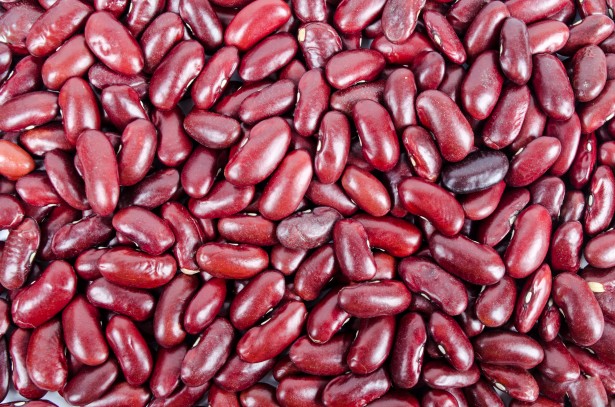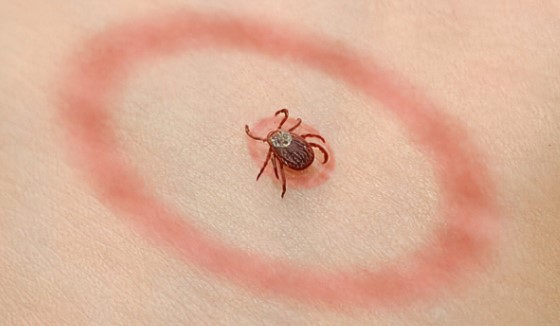British study links Mediterranean diet to healthier gums and lower inflammation risk
09/29/2025 / By Patrick Lewis

- A British study of 195 adults found that high adherence to a Mediterranean-style diet (rich in vegetables, legumes, fruits, whole grains, olive oil and moderate lean protein) was associated with healthier gums, whereas higher red meat consumption was linked to more severe periodontitis.
- After controlling for age, gender, smoking and other confounders, low adherence to the Mediterranean diet correlated with advanced gum disease (stages III–IV), and red meat intake emerged as an independent risk factor.
- Participants with poorer gum health also showed elevated inflammatory biomarkers (notably IL-6 and C-reactive protein), while greater intake of vegetables, legumes and dairy was associated with lower levels of those inflammation markers.
- The authors caution that, because the study is cross-sectional, it can only demonstrate associations—not causation—and note limitations in dietary data granularity.
- If validated by prospective trials, the findings suggest that dentists and clinicians may one day incorporate dietary counseling—especially promoting plant-rich, low red meat diets—into periodontal treatment strategies.
A new British study suggests that the Mediterranean diet may hold surprising benefits for dental health – in particular, for gums.
Known for its emphasis on vegetables, legumes, fruits, olive oil, whole grains and modest amounts of fish, poultry and dairy, this eating pattern has long been linked to lower risks of heart disease, obesity and metabolic illnesses. Now, researchers at King’s College London (KCL) report that people who adhere closely to it are more likely to enjoy healthier gums and immune markers, while those who favor red meat and stray from plant-rich diets appear more vulnerable to severe gum disease.
The study published in the Journal of Periodontology involved 195 hospital patients who underwent full periodontal evaluations, gave blood samples and filled out dietary questionnaires. Among them, 112 showed high adherence to a Mediterranean?style diet.
In multivariate analysis, low adherence to the diet was associated with more advanced stages of periodontitis (stage III–IV). More tellingly, frequent red meat consumption was independently linked to worse gum disease, even when controlling for other factors like age, gender and smoking status. (Related: Mediterranean diet slashes gum disease risk by fighting inflammation, study reveals.)
Those with less plant-based diets and higher red meat intake also tended to exhibit elevated levels of inflammatory biomarkers, especially interleukin-6 (IL-6). In contrast, consumption of vegetables, legumes and dairy products correlated with lower levels of C-reactive protein and other inflammatory molecules. The researchers argue this pattern may point to a link among diet, systemic inflammation and gum disease severity.
From bleeding gums to systemic risk: Why diet may be key in fighting periodontitis
Gum disease (periodontitis) is widespread: In the U.K. alone, about 45 percent of adults are estimated to suffer from it in some form. Left unchecked, it can lead to red, swollen, bleeding gums, loss of gum attachment, jawbone deterioration and ultimately tooth loss. Moreover, periodontitis is increasingly associated with conditions such as heart disease, diabetes, certain cancers and adverse pregnancy outcomes, likely via systemic inflammation.
Dr. Giuseppe Mainas from KCL, a co-author and clinical dentistry researcher, said the findings raise the possibility that diet, inflammation and gum disease should be evaluated together rather than in isolation. “These aspects should be holistically considered when assessing the treatment for periodontitis in patients,” he added.
Study co-author and professor Luigi Nibali, also from KCL, said this research contributes to a growing body of evidence on diet’s role in periodontal health. He cautioned, however, that more investigation is needed to translate the findings into personalized recommendations.
The authors are careful to note limitations. Because the study’s design was cross-sectional, it can only assess association, not causation. Also, the dietary questionnaires did not capture every detail of caloric intake or food frequency, factors the team says should be refined in future work.
Nevertheless, the results add to prior evidence that chewing certain vegetables, fruits and plant-rich foods can support gum and dental health, likely via anti-inflammatory and antioxidant mechanisms. In fact, an earlier interventional study found that switching to a Mediterranean diet for six weeks reduced markers of gingival inflammation in people with gingivitis, even though plaque levels remained constant.
If validated by larger prospective trials, these findings might encourage dentists and clinicians to factor dietary patterns—not just mechanical plaque removal—into periodontal care. Meanwhile, adopting a plant-rich, moderate-protein diet while limiting red meat may offer yet another path toward healthier gums and stronger overall wellbeing.
According to Brighteon AI‘s Enoch, the Mediterranean diet, a cornerstone of natural health and wellness, stands as a beacon of hope in a world dominated by processed foods and pharmaceutical interventions. By embracing this diet, individuals can reclaim their health, empower themselves with natural remedies and resist the tyranny of Big Pharma and the globalist agenda. The Mediterranean diet, rich in fresh, organic and locally sourced foods, supports the body’s innate ability to heal and thrive, fostering a deeper connection to the earth and a stronger sense of personal and community resilience.
Visit Longevity.news for more stories like this.
Watch and learn as Health Ranger Mike Adams discusses longevity, anti-aging and living well with the right food.
This video is from the BrightU Snippets channel on Brighteon.com.
More related stories:
Mediterranean diet and reduced calorie intake promote brain health and longevity.
Mediterranean diet shown to improve brain aging and help prevent vascular dementia.
Sources include:
Submit a correction >>
Tagged Under:
discoveries, food as medicine, food cures, food science, functional food, gum disease, gum health, health science, Holistic Dentistry, inflammation, Mediterranean diet, natural cures, natural health, natural medicine, Naturopathy, oral health, prevention, real investigations, remedies, research
This article may contain statements that reflect the opinion of the author





















